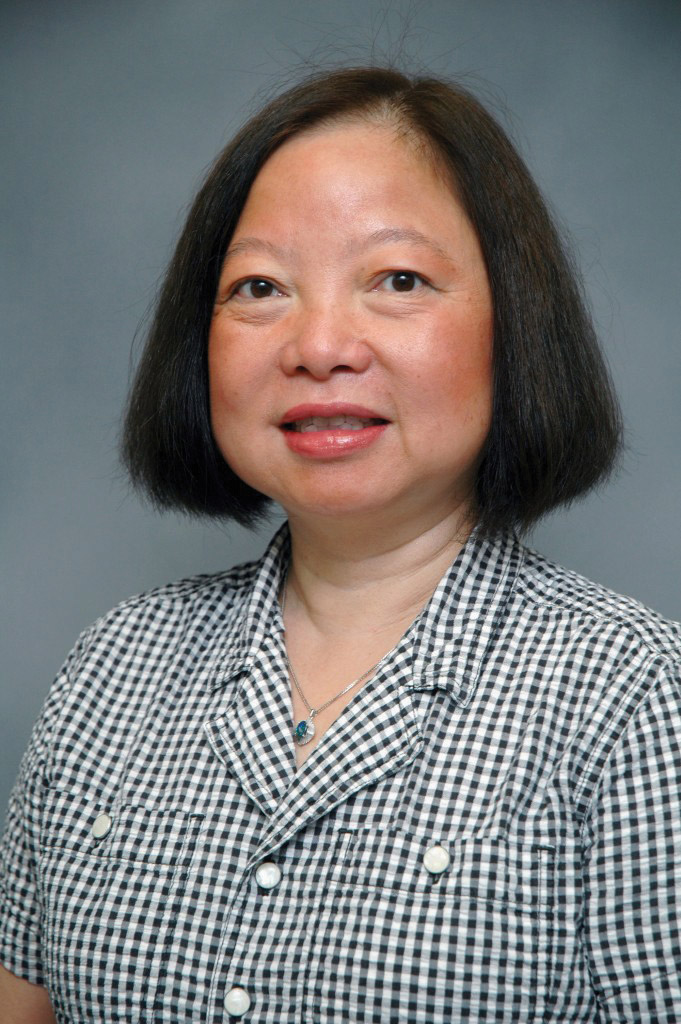Hai-Ping Cheng, Ph.D.
Professor of Physics
College of Liberal Arts and Sciences
2019 Awardee

Hai-Ping Cheng’s research activities center around the physical, chemical, and mechanical processes in complex systems ranging across nano-size objects such as molecular magnets.
“I use large-scale computer simulation methods and develop new methods as this science progresses,” Cheng said.
Her lab’s overarching goal is to develop a basic understanding of physical and chemical properties of matter at the atomic and molecular level and manipulate these properties at the electron level. These systems exhibit unique properties, and therefore, are of fundamental significance and potential technological value; for example, in electronic devices (including qubits for quantum computers), medicine and harvesting solar energy.
Currently, she is responsible for leading the Center for Molecular Magnetic Quantum Materials (M2QM) with support from the US Department of Energy (DOE) Energy Frontier Research Center program. The center’s mission is to design inter-molecular communication via different interactions in clusters and solids; deepen understanding and optimize control of electron-level physical processes in molecular quantum materials; and develop underlying materials science for future computers and electronics.
Notably, Cheng is an advocate for the sharing of scientific software.
“All codes developed in my group will be distributed via open source,” Cheng said. “This is the way, I believe, to best advance science and discovery.”
Cheng is publishing at an impressive rate, with 33 papers appearing in high-quality physics journals over the past five years, without taking into account the large number of papers on which she appears automatically as a member of the LIGO Scientific Collaboration. She has served as principal investigator on external awards that have brought $5.29 million to the University of Florida since January 2014, of which her own share has been $4.12 million. These numbers include just the first of four annual installments of funding for the Center of Molecular Quantum Materials.

